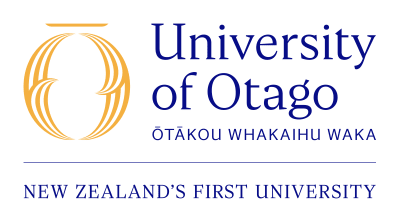
Master of Applied Science (MAppSc) in Environmental Management
Dunedin, New Zealand
DURATION
2 Years
LANGUAGES
English
PACE
Full time
APPLICATION DEADLINE
Request application deadline
EARLIEST START DATE
Request earliest startdate
TUITION FEES
Request tuition fees

STUDY FORMAT
On-Campus
Introduction
Master of Applied Science (MAppSc) in Environmental Management
The Master of Applied Science (MAppSc) is a 180-point, coursework postgraduate degree. A candidate would normally be a graduate but the degree is also open to those with other relevant qualifications.
The MAppSc is designed for students who wish to pursue an interdisciplinary Program of study underpinned by science that delivers versatile skills relevant to multiple end-users. Optional paths are available that emphasise commercialisation, workplace-based projects or independent study.
Optional papers for particular interests
The MAppSc can be completed in 12 months or in stages, providing flexibility for recent graduates and those currently employed.
Why study Environmental Management?
As an Environmental Management graduate, you'll work with decision-makers, governments, and large businesses, making a practical contribution to addressing environmental problems in New Zealand and overseas.
By studying Environmental Management you'll gain a comprehensive and flexible qualification. The course will develop a wide range of research, analysis, communication and computing skills, and prepare you to take advantage of the numerous career pathways in Environmental Management.
Admissions
Scholarships and Funding
Several scholarship options are available. Please check the university website for more information.
Curriculum
- shall consist of approved papers at 400-level or higher worth at least 180 points, selected from the papers specified in Science Schedule D for the Master of Applied Science subject concerned, and including at least one of APPS 596-598.
- shall normally include papers from more than one subject and at least one of the approved 400-level papers that shall be amongst the first papers taken in the Program of study.
- may, with the approval of the Head of Department or Course Director concerned, include papers worth up to 60 points from 400- and 500-level papers other than those specified in Schedule D.
- A candidate who has completed the requirements for the Postgraduate Certificate or the Postgraduate Diploma in Applied Science shall be exempted from those papers in the Program for the degree which have previously been passed for the certificate or diploma.
Subject areas
Subjects offered for the Master of Applied Science (MAppSc) and Master of Science (MSc):
- Advanced Nutrition Practice
- Applied Geology
- Artificial Intelligence
- Bioengineering
- Computational Modelling (no new enrolments are currently being accepted)
- Computer Science
- Consumer Food Science
- Creative Non-Fiction Writing in Science
- Electronics (no new enrolments)
- Environmental Management
- Geographic Information Systems
- Marine Environmental Science (not offered in 2022)
- Molecular Biotechnology
- Plant Biotechnology
- Quantitative Genetics
- Science and Natural History Filmmaking
- Science Communication
- Science in Society
- Software Engineering
- Telecommunications
Program Outcome
Level of Award of the Degree
The degree may be awarded with distinction or with credit.
Program Tuition Fee
Career Opportunities
Environmental Management skills are in demand around the world. In New Zealand, Environmental Management has been given an enormous boost as a career option with the introduction of some major pieces of legislation, in particular the Resource Management Act, the Hazardous Substances and New Organisms Act, and the Biosecurity Act. And there are plenty of opportunities to practise overseas, as long as you familiarize yourself with the local statutory requirements.
Many large companies now employ Environmental Management staff to work directly with their other staff, and to deal with local and central government. Those with overseas operations will need personnel with an international perspective in their training, something emphasised in the Otago course.
Many export companies now need environmental accreditation in order to secure markets in Europe, Japan, North America and elsewhere. Helping companies meet the requirements of such accreditation and certification schemes will be a major employment opportunity in coming years.
There is now a very large environmental consulting sector, contracting to private and public sector organisations. This kind of work tends to have plenty of variety, not to mention opportunities for travel.
Program delivery
Application Details
Applicants should submit their online application form along with the following supporting documents: scanned copies of their previous official academic transcripts (awards gained, marks, grades); a certified copy of the personal details page of their passport or a birth certificate (in English); Educational Credential Evaluators report (ECE); and certified/notarised translations of original documents which are not in English. After completion of online application, applicant’s proof of identity document must be posted to: International Office, University of Otago, PO Box 56, Dunedin 9054, New Zealand. International student applications for semester 1/summer school study close: Oct-31; Semester 2 study close: Apr-30.
